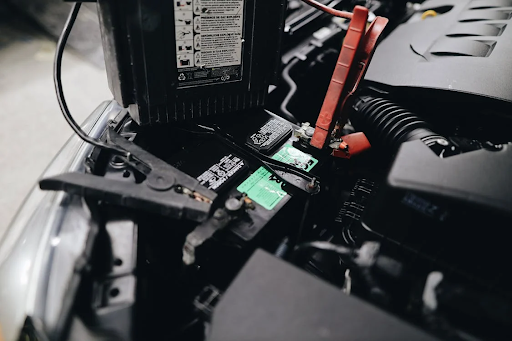We all live fast-paced lives. Unfortunately, these demands don’t stop for extreme temperatures. You may drive to work. If you’re like others, you spend your drive time taking your kids to sports practice, school, and weekend hangouts with friends.
As you may know, nothing throws a fork in life’s plans faster than car trouble. The best way to avoid car-related problems is with proper vehicle maintenance. Plus, well-maintained cars are less likely to need expensive emergency repairs.
Here are seasonal car maintenance tips to prepare your car for summer and winter.
Smart Seasonal Car Maintenance Tips Before Summer Arrives
 As summer’s heat arrives, follow the tips below to ensure your car is ready to handle higher temperatures.
As summer’s heat arrives, follow the tips below to ensure your car is ready to handle higher temperatures.
Get a Sunshade
No one enjoys stepping into a hot, muggy, and sweat-inducing vehicle. Fortunately, there’s a simple solution called a sunshade. This inexpensive item helps block the sun’s rays from entering your vehicle through its windows.
This portable source of shade keeps your vehicle cooler, especially when it’s parked under the sun for long periods. Sunshades also prevent interior fading caused by the sun’s UV rays.
Have Your Oil Replaced
Understandably, most people are ready to hit the road in summer. The weather’s nice. The sun is shining. It’s time for planned or spur-of-the-moment vacations. As you can imagine, long road trips can have your engine working overtime.
Keep your engine running well with regular oil changes. Having new oil in your automobile keeps your engine lubricated. This lubrication ensures your engine provides optimal performance.
Additionally, old oil accumulates debris, dirt, and other particles that can harm your engine. A quick oil change gets those unwanted contaminants out of your automobile.
New oil can even help you make fewer trips to your local gas station. That’s because fresh oil optimizes engine power for superior fuel efficiency.
Schedule an AC Inspection
There’s nearly nothing more vital during summer than air conditioning, especially while you’re driving in a heat-generating car.
If your vehicle’s air conditioning system isn’t working well (or at all), check your car’s refrigerant levels. Not having enough of this fluid can cause warm and unpleasant-feeling air to flow out of your vents.
Another important step is to check your car’s cabin air filter. A cabin air filter works like the one in your home. Like a home air filter, vehicle cabin filters accumulate dust and dirt. Swapping out a dirty filter with a new one can improve airflow, providing a consistent blast of coolness.
Use These Seasonal Car Maintenance Tips to Prepare for Winter

Colder months are tough on automobiles. But they don’t have to be. Instead of stressing, follow the tips below.
A New Set of Tires
Winter typically brings sleet and snow, causing slick roads. If you must drive in the midst of winter weather, having traction-providing tires is a must.
It’s best to replace your car’s tires about every four to six years or around 50,000 to 75,000 miles driven. Consider a set of winter tires if you live in an area known for harsh winter weather. You can also take the DIY route if you’re so inclined with a tire jack, jack rod, floor jack, and your new tires.
Fluid Inspections and Replacements
Vehicles depend on fluids. Continued driving can deplete these liquids. If left unresolved, a lack of fluids can cause severe vehicle-related problems.
Replacing your car’s antifreeze, as this liquid’s name implies, helps prevent engine damage if coolant liquids freeze. Having enough antifreeze in your car helps prevent you from paying for often costly engine repairs or replacements.
A fluid check also keeps your engine running well with new motor oil. Other fluids checked and replaced during this time can include:
- Brake fluid
- Windshield wiper fluid
- Power steering fluid
Check Your Car’s Battery

Did you know that vehicle batteries require more current to start during the winter? Once your vehicle is ready to start, it continually generates power. But first, you have to get it started.
If your battery is running low, you could hear the dreaded clicking sound every adult fears. Fortunately, it’s easy to fix. Safely disconnect your battery. Then, swap it out with a new one.
But what if you’re unsure how much power your battery has left? You can have a mechanic run a battery health test. Another option is using a multimeter on your car’s battery if you’re mechanically inclined.
Common signs of a dying battery include:
- Your vehicle takes repeated attempts to start
- Dimmer-than-normal interior lights
- Your battery is three to five years old
- Battery is leaking onto your battery terminals
Consider these seasonal car maintenance tips as a starting point toward a properly maintained automobile. It’s advisable to visit a professional mechanic for vehicle inspections as summer and winter arrive. You can then rest assured you’re driving a safe automobile all year round.


